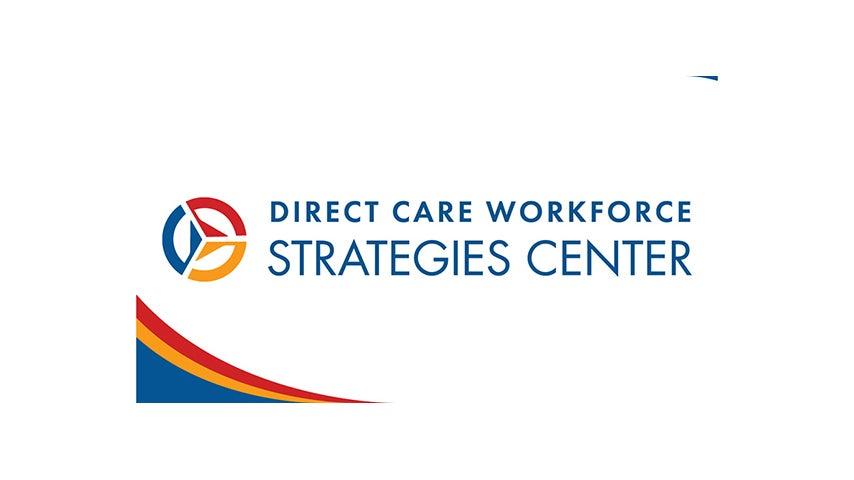NCOA Expands State Participation in Direct Care Workforce Strategies Center
2 min read

States will receive assistance to strengthen the workforce that supports older adults and people with disabilities
Contact
Simona Combi
Public Relations Manager
571-527-3982
simona.combi@ncoa.org
Aug. 11, 2025, Arlington, VA—The National Council on Aging (NCOA), the national voice for every person’s right to age well, in partnership with the U.S. Administration for Community Living (ACL), has announced the next round of states and territories selected to participate in the Direct Care Workforce Strategies Center’s Technical Assistance Program.
Eighteen teams will receive tailored support over the next year to advance solutions in recruitment, retention, well-being, and career advancement for the direct care workforce serving older adults and people with disabilities. Launched in 2024, the program equips states with up to 250 hours of expert support, collaborative learning, and customized technical assistance to build a stronger, more sustainable workforce for home- and community-based services.
This announcement comes at a critical time, as the demand for professionals in home- and community-based services continues to rise. According to PHI , over 860,000 new direct care professionals will be needed by 2032 to meet growing demand, which is more new jobs than any other occupation in the U.S.
“We need an all-hands-on-deck approach to recruit, retain, and train the direct care workforce to effectively support older adults and people with disabilities to live and thrive in the community,” said Mary Lazare, Acting ACL Administrator and Assistant Secretary for Aging. “The DCW Strategies Center will support states to replicate and scale strategies that will have near-term and long-lasting impact. ACL congratulates the 18 teams that have committed to work together, with support from the DCW Strategies Center, to improve access to this vital workforce in the community.”
“A strong direct care workforce isn’t a ‘nice to have’—it’s the backbone of how we support older adults and people with disabilities to live with dignity and independence” said Ramsey Alwin, NCOA President and CEO.
States are on the front lines of this work, and the DCW Strategies Center is honored to partner with them to drive real, systems-level change. This next round of technical assistance is about scaling what works, breaking down barriers, and ensuring every person—regardless of zip code—can count on a skilled, supported care workforce.”
“Supporting a strong health care workforce is a top bipartisan priority for Governors. Direct care professionals play a critical role in providing the care older Americans and people with disabilities need and deserve, yet this workforce is stretched thin in state after state. As Governors work to implement innovative strategies to recruit, train, and retain the next generation of caregivers, NGA welcomes the opportunity to partner with NCOA and ACL to support this vital work.” – Bill McBride, Executive Director, National Governors Association
This year’s participant states and territories will center their work in three areas of focus:
- Joining the Workforce: These teams will focus on strategies to recruit new individuals into the direct care field—California, Hawaii, Idaho, Nevada, Vermont, and West Virginia. This work focuses on designing and testing career pathways or registered apprenticeship models that provide on-ramps into the field, pair training with paid work experience, mentorship, and clear progression opportunities.
- Well-Being at Work: These teams will focus on improving the day-to-day experience of direct care professionals, including supportive services, responsive trainings and cultivating strong workplace culture—Alabama, Colorado, Kansas, New Hampshire, Puerto Rico, and Tennessee. Activities will advance the safety, stability, and well-being of the DCW through a focused set of strategies designed to enhance job quality. This includes developing models that improve access to benefits and assessing and improving provider workplace culture
- Career Progression: These teams will focus on building clear and meaningful career pathways, training, and credentialing opportunities—Iowa, Maine, Massachusetts, North Carolina, Oregon, and Washington. States have indicated their interest in designing and implementing a DCW career lattice framework across state aging, disability, workforce, and Medicaid systems—outlining multiple, flexible pathways for advancement.
This effort is part of NCOA’s broader commitment to strengthening the aging services workforce and elevating solutions that ensure older adults and people with disabilities can live with health, economic well-being, and dignity in their homes and communities.
About the Direct Care Workforce Strategies Center
Funded by the Administration for Community Living, U.S. Department of Health and Human Services and operated by the National Council on Aging, in partnership with a cadre of national partners and subject matter experts, the Direct Care Workforce Strategies Center provides technical assistance to states and service providers and facilitates collaboration with stakeholders to improve the recruitment, retention, training, and professional development of members of the direct care workforce.
About NCOA
The National Council on Aging (NCOA) is the national voice for every person’s right to age well. Working with thousands of national and local partners, we provide resources, tools, best practices, and advocacy to ensure every person can age with health and financial security. Founded in 1950, we are the oldest national organization focused on older adults. Learn more by following us at @NCOAging.